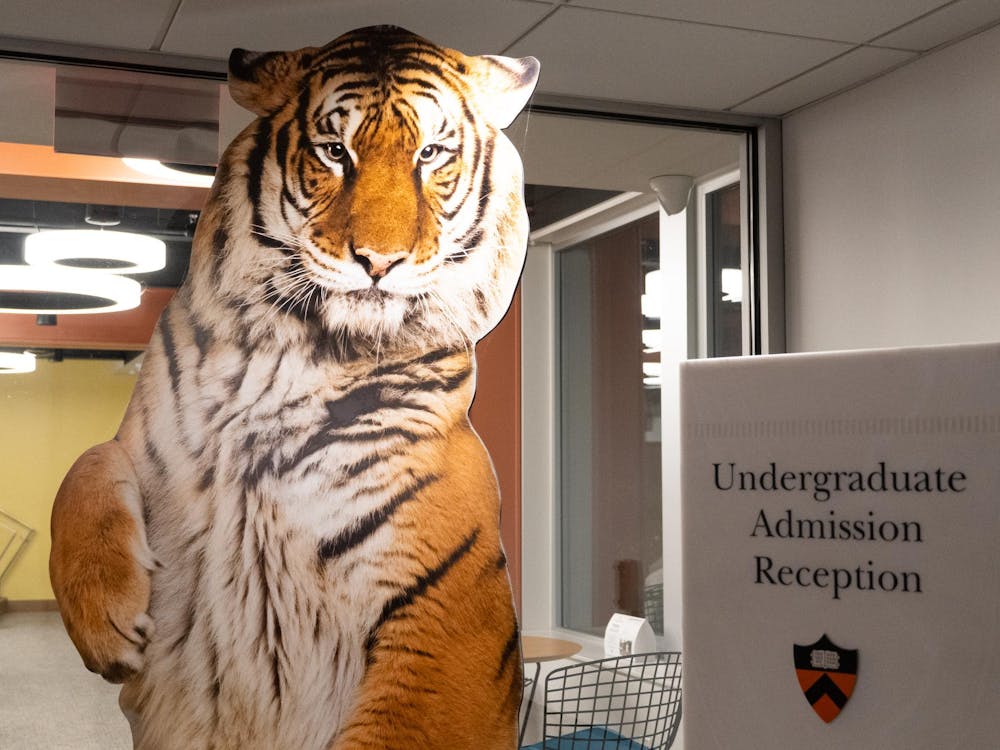Tilghman was joined on the panel by University Vice President and Secretary Robert Durkee ’69, history professor Sean Wilentz and politics Ph.D. candidate Daniel Mark ’03.
In his opening remarks, Durkee recounted Princeton’s history as a politically active campus, from the nine members it sent to the 1787 Constitutional Convention to the formation of an organization called the Veterans of Future Wars, which spread to hundreds of college campuses, at a tea party at Terrace Club. He also described the origins of fall break, which usually coincides with Election Day, as an attempt to give students, faculty and the administration a chance to participate actively in the electoral process.
In his account of the history of Princeton’s political activism, Wilentz noted that Princeton always had a reputation for being quiet but that its lack of activism has been especially noticeable of late.
“The idea of lobbying Congress over a great issue, the idea you’d be able to get anything done, is not as widespread, not as firmly rooted, as it once was,” Wilentz said.
While Wilentz said this lack of faith in politics is a general trend nationally, he pointed to presidential elections as an exception when the campus becomes involved in politics — except this November’s race.
“Four years ago there was a real enthusiasm in politics; there was a sense it was opening up in new ways,” Wilentz said. “I wish I could say the same about 2012. I don’t feel that in the same way I did in 2008.”
Tilghman addressed her own experiences with campus activism as University president, highlighting two events that framed the political dialogue in the early days of her presidency: 9/11 and the Iraq War.
The attacks on Sept. 11 occurred during Tilghman’s first months as president and galvanized the entire campus with a profound desire to come to terms with the violence. Students spent the entire year personally striving to understand their feelings about the Middle East, Islam and terrorism, she said.
Then “the temperature went down; the panel discussions, the sit-ins, the discussions around the dining room table eventually subsided,” Tilghman said.
While the first event showed a fierce campus response, the second surprised Tilghman with its lack of a response. Student reaction to the Iraq War was relatively muted.
“I frankly thought that I had a Vietnam War on my hands. I thought this campus was going to erupt,” Tilghman said.
Tilghman said she prepared for student response by consulting former University President Robert Goheen ’40, who led the University during the Vietnam War, only to see nothing even approaching the level of protest during the 1960s and 1970s.

“That was when I began thinking hard about what is happening on this campus and why the Orange Bubble may be too thick, that what is happening outside the world isn’t having a big enough impact on what is happening on campus,” Tilghman said.
Tilghman said the lack of reaction to the war did not imply a lack of concern about local and national issues, however. She pointed to student activism in students groups like Students for Education Reform, the DREAM Team and the Anscombe Society.
“The activism I see is not electoral politics. The activism I see is around issues that are identified and then pursued by niche groups of students,” Tilghman said.
Mark, as the youngest member of the panel and the only vocal conservative, focused on the current campus environment for conservative students. Mark challenged the assertion that Princeton students are apathetic in political activism, instead claiming that the political activism came in a different form than the stereotypical street theater and demonstration.
“We are blessed to have a campus where both sides have cultivated an environment that encourages and even invites political activism in the form of intellectual discourse,” Mark said.
Mark credited the strong political back-and-forth both to Tilghman’s willingness to welcome prominent faculty from both ends of the political spectrum and to the civility of both conservative and liberal students.
Wilentz credited campus political tolerance to students’ confidence in their political views, claiming that only people who lack confidence in their views feel the need to suppress conflicting views.
“We find people who have the courage of their convictions and are willing to stand up for them but don’t have to put the other side down in order to get their views out,” Wilentz said.
Looking into the future, the panelists did not anticipate much change in the campus conversation in the coming years. The panelists told students that the future of campus activism depended on future students, and Durkee offered a hopeful message to students about political involvement.
“For Princetonians who want to be effective in the political process, there are ways to do that,” Durkee said.
The event, which was held in the Whig Senate Hall, was co-sponsored by College Republicans, College Democrats, Whig-Cliosophic Society and P-Votes.







